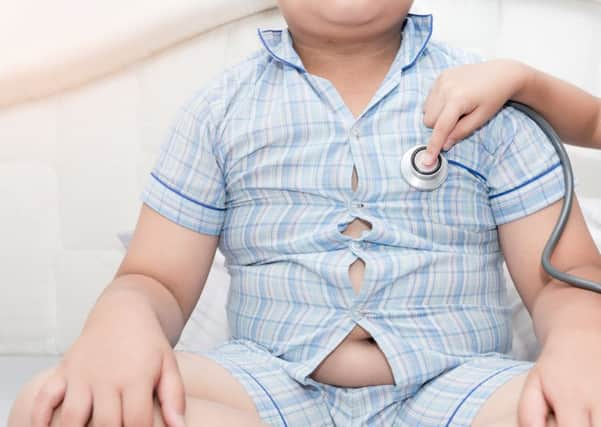Dr Scott Hardie: We need a '˜biopsychosocial' approach to obesity


The reality for our youth of today is a country which, shamefully, has one of the lowest life expectancy rates and highest weight outcomes of any nation in the Organisation for Economic Co-operation and Development (OECD).
Problematically, the action required is widespread. We are raising our children in an environment which pushes treats over every day healthy choices and sets an example of excess, physical inactivity, and dietary ignorance.
Advertisement
Hide AdAdvertisement
Hide AdOnly a combined ‘biopsychosocial’ approach, which encompasses actions on genetic, psychological, and social factors will provide adequate changes to our health.
The causes of obesity can be complex in nature, but so far proposed policy interventions have focused on price promotions and advertising – just part of the equation.
While it is true unhealthy foods are too heavily promoted across all media platforms and that our food is too full of fat and salt, it is also true that we are all too reluctant to get off the couch and too ill-informed to make the right choices.
Deprivation also has a huge effect on our health. Less likely to achieve at school and more likely to live in an environment where fast food is easily accessible, those from less affluent backgrounds face a toxic mix which make the healthy choices the hard choices.
From school education to doing the family shop, we should be demonstrating which foods are necessary (core) and which are a luxury (non-core) to our younger generation.
The effect of obesity on our young people’s health goes beyond the physical, students living with obesity are more likely to suffer from lower educational attainment, emotional distress and a range of behaviours associated with poor health outcomes due to weight-based stigma and mocking.
The Year of Young People 2018 is an opportunity to celebrate and support our nation’s young people, and what better way to do so than by tackling a chronic health issue which we have been ignoring for decades?
We cannot afford yet another generation to be burdened by the physical and mental health problems caused by over-eating, under-exercising, and ill-educated life choices.
Advertisement
Hide AdAdvertisement
Hide AdPsychological interventions can help bridge the gap in our approach, aiding understanding of how individuals can overcome stress, anxiety and stigma which perpetuate the cycle of poor diet and lack of exercise.
We need to challenge the perception that individuals are solely to blame for their weight. Removing this barrier – whether by adapting the environment to promote healthy options or via one-to-one health interventions – is the first step to removing the intense shame which can prevent individuals from engaging in healthier lifestyles.
The Scottish Government’s strategy should include actions which do not just curb price promotions but also those which target the most at-risk groups.
There is no one-size-fits-all solution, we owe it to ourselves and to our future generations to make positive changes to our health, but only a bold strategy will be able to support and enable us to live healthier and happier lives.
Dr Scott Hardie is Scottish branch chair of the British Psychological Society
